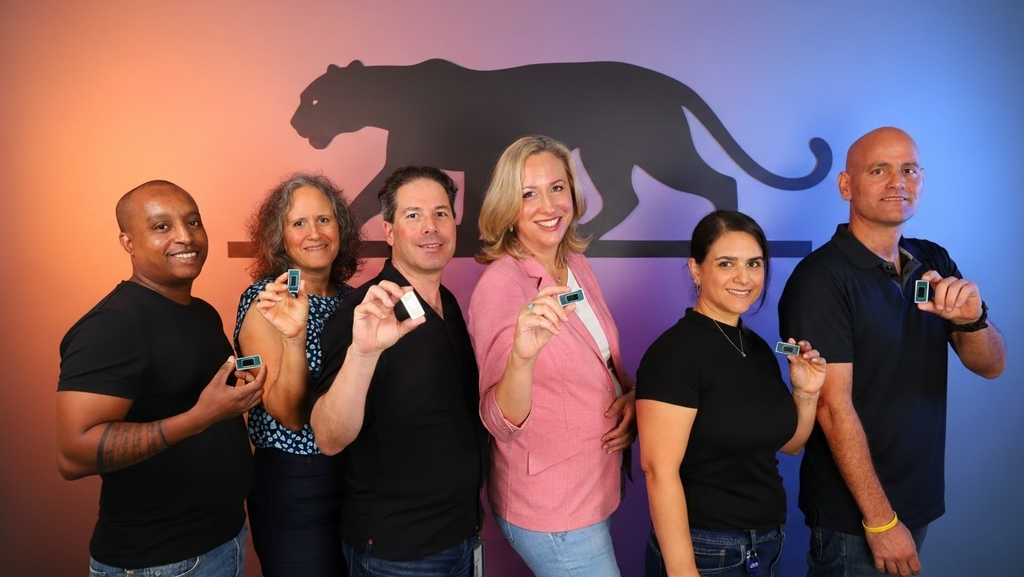
Intel bets on Israel to drive its Panther Lake AI laptop revival
The chipmaker unveils its first 18A-based processors, developed in Israel, hoping to ignite a new wave of AI-powered personal computing.
The last time laptops truly generated excitement was back in 2008, when Apple stunned the world with the ultra-thin MacBook Air and PC makers unveiled hybrid laptops. Since then, the market has remained steady and profitable, but far from thrilling. That, however, is the market Intel is now betting on as a springboard for its recovery, with a new family of laptop chips unveiled today. The twist? It may be the AI revolution, and Intel’s failure to capitalize on it until now, that brings the company back into the spotlight.
Paradoxically, Intel is currently in the best shape it has been in for years. The company missed out on the two biggest technology revolutions of recent decades, mobile and AI, and continues to struggle to jumpstart its foundry business. It is also undergoing deep organizational change under new CEO Lip-Bu Tan, including yet another round of layoffs. Yet in recent weeks, investor sentiment has turned cautiously optimistic. The U.S. government and Nvidia have both taken equity stakes in Intel, Washington signaling strategic support in times of crisis, and Nvidia signaling collaboration with the market’s most valuable chipmaker.
Now, Intel is preparing for its first major launch under Tan: Panther Lake, a new family of processors built on the hope that the current wave of AI adoption will reignite interest in personal computing and revive the laptop market. The company aims to capture at least part of this emerging segment and strengthen its competitive position.
Intel describes Panther Lake, developed at its R&D center in Israel, as “designed for the era of artificial intelligence.” It is the company’s first processor to be manufactured using the Intel 18A process, which was originally intended to anchor its foundry strategy of producing chips for other companies. After limited external demand, Intel chose to use the process primarily for its own products.
According to Intel, the 18A process delivers a 15% improvement in energy efficiency and higher transistor density. A central innovation in Panther Lake’s architecture is the shift from a single monolithic chip to a modular “tile” design, separate CPU, GPU, communications, and AI units, each optimized for its own task. This approach allows Intel to use the best manufacturing technology for each component: the CPU is made using Intel’s 18A process, while the GPU is produced by TSMC. The modular design also enables customized versions optimized for different needs: power-efficient chips for ultra-thin laptops, high-performance versions for professionals, or graphics-focused configurations for gamers and creators.
As with many of Intel’s flagship products, Panther Lake’s development was led by its Israeli R&D teams. “The product has a very, very Israeli leadership and branding in its essence,” said Zohar Tsaba, Panther Lake’s project manager. “The knowledge, expertise, and technological leadership of our engineers here in Israel have a huge impact on Intel’s flagship products, especially in laptops. Despite the challenges of recent years, including reserve duty and related disruptions, the commitment of employees allows us to maintain high-quality development and deliver critical products on time.”
The real story behind Panther Lake, however, lies in its AI integration. Intel calls it “the first AI PC processor manufactured with 18A technology” and says “a central emphasis in the architecture has been placed on AI capabilities.” The chip supports more than 900 AI models, enabling next-generation applications to run locally on a computer rather than through cloud services.
“Intel’s AI capabilities go far beyond processing engines,” said Tsaba. “They include technologies like voice recognition, real-time translation, image recognition, and meeting summaries, all while maintaining strict user privacy. We’re working closely with partners such as Microsoft and are leading the AI PC market.”
While most of today’s AI activity focuses on large language models like ChatGPT, which rely on massive data centers, the next stage of AI development is expected to move toward on-device AI, running smaller, specialized models locally on user devices. Apple’s AI strategy already centers on such models, and Microsoft is pursuing a similar approach with its “AI PC” initiative.
Related articles:
Local AI models offer clear advantages: faster responses, the ability to function offline, better privacy protections (since data remains on the device), and reduced pressure on cloud infrastructure. However, these capabilities require new generations of processors designed specifically for AI tasks. Intel believes Panther Lake can trigger a new wave of laptop upgrades, as consumers seek access to advanced AI agents that can automate tasks locally, without relying on the cloud.
If that happens, Intel could see not only a boost in sales but also a reassertion of relevance in the AI landscape. Though it remains far from challenging Nvidia in data centers, success in the AI PC market could help Intel rebuild its reputation, and its balance sheet.
Still, it’s a high-stakes bet. Much depends on whether developers create enough compelling local AI applications, whether consumers are willing to upgrade their hardware, and whether Intel can fend off rivals like Apple and Qualcomm, which are also targeting the AI-enabled PC market.